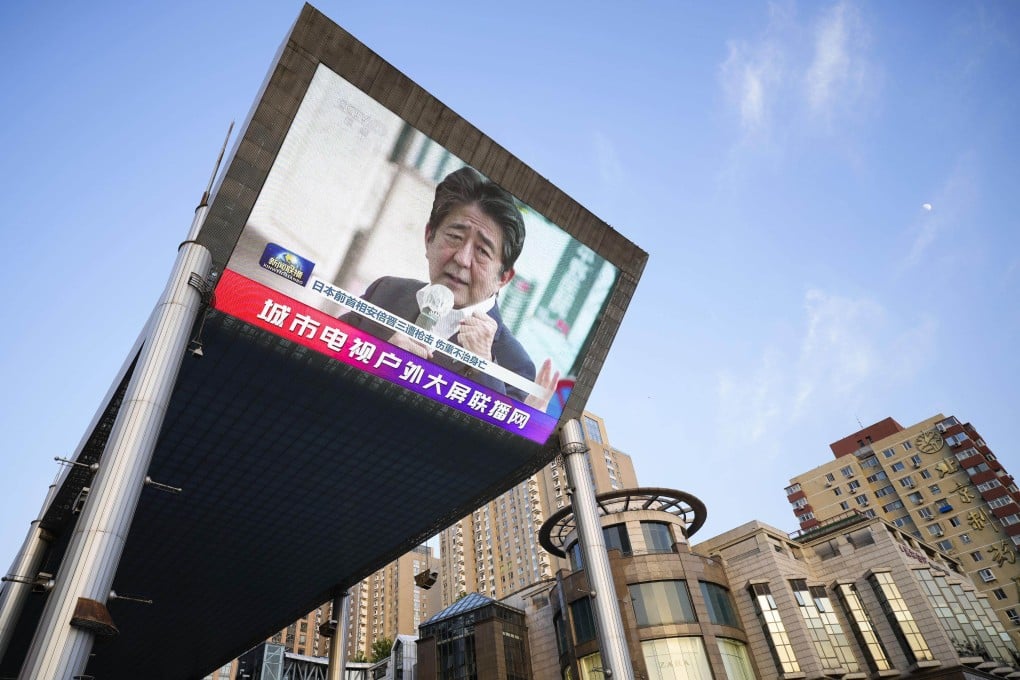Advertisement
Chinese nationalists celebrate Shinzo Abe shooting online, as some argue feeling happy is the normal reaction
- While some social media users expressed sympathy for the former Japanese leader, others celebrated his death and saw him as a symbol of war crimes denialism
- The reaction risks damaging China’s image internationally and some analysts say it threatens to complicate Beijing’s diplomatic efforts
Reading Time:3 minutes
Why you can trust SCMP
99+

The assassination of the former Japanese prime minister Shinzo Abe has exposed sharp divisions on China’s tightly controlled internet, with many comments on social media celebrating his death.
The radical nationalism on show has damaged China’s image internationally and may complicate Beijing’s efforts to improve relations with other countries, commentators warned.
Hu Xijin, former editor-in-chief of the nationalistic tabloid Global Times, expressed sympathy for Abe on Chinese social media Weibo on Friday.
Advertisement
“I feel, at this point, political complexities should be set aside… I hope more people can understand and join me,” Hu said.
But many Weibo users , who see Abe as representative of a Japanese right-wing in denial about the country’s war crimes, replied with hostile comments.
“What I regret is that [the assassination] didn’t happen yesterday,” said one commentator, referring to the July 7 anniversary of the Marco Polo Bridge Incident in 1937, which triggered the full-scale Japanese invasion of China.
Advertisement
Select Voice
Select Speed
1.00x
